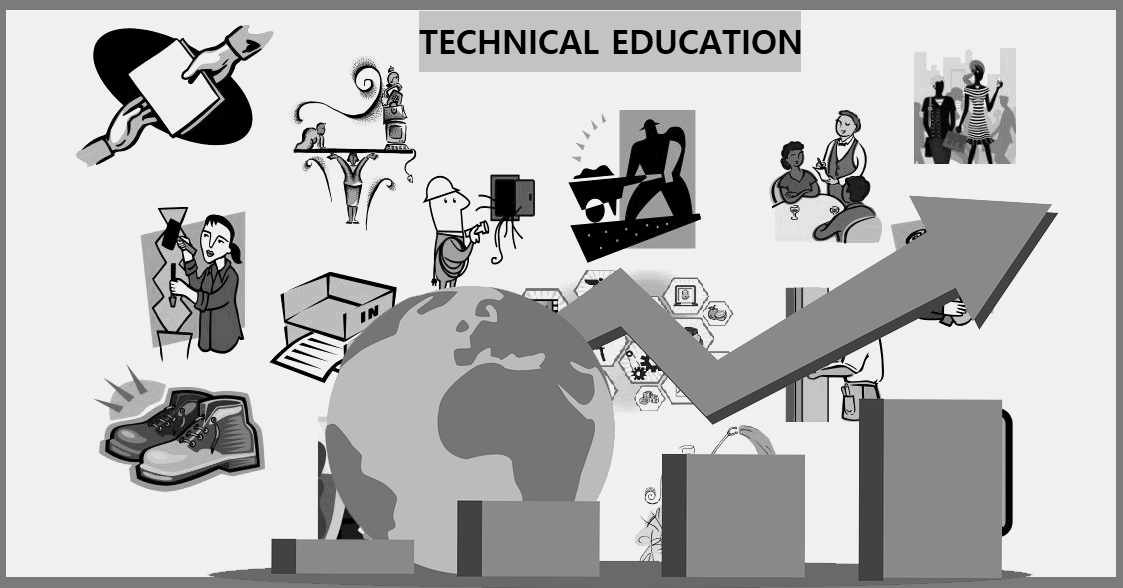Introduction to Technical Education
As the world becomes increasingly complex and technology-driven, the importance of technical education cannot be overstated. Technical education equips individuals with the skills and knowledge necessary to thrive in a fast-paced, ever-evolving society. It encompasses a wide range of disciplines, including engineering, computer science, healthcare, and more. In this article, I will delve into the benefits of technical education in the modern world, exploring its advantages, comparing it to traditional education, discussing career opportunities, highlighting different industries that rely on technical expertise, addressing misconceptions, and sharing success stories of individuals who have excelled through technical education.
The Importance of Technical Education in the Modern World
Technical education plays a critical role in addressing the needs of the modern world. With rapid advancements in technology, industries are constantly seeking individuals with specialized technical skills. Technical education provides the necessary foundation to meet these demands. By focusing on practical, hands-on learning, it prepares students to tackle real-world challenges effectively. Moreover, technical education fosters innovation and creativity, enabling individuals to develop groundbreaking solutions to complex problems. It equips students with critical thinking and problem-solving skills, which are essential in today’s rapidly changing job market.
Advantages of Technical Education
One of the key advantages of technical education is its emphasis on practical skills. Unlike traditional education, which often focuses on theoretical concepts, technical education equips students with tangible skills that can be directly applied in the workplace. This hands-on approach allows individuals to develop a deep understanding of their chosen field and become proficient in the necessary technologies and tools.
Another advantage of technical education is the high demand for skilled professionals in various industries. As technology continues to advance, the need for individuals with specialized technical expertise continues to grow. This high demand translates into excellent job prospects and competitive salaries for graduates of technical education programs. Whether it’s in engineering, information technology, healthcare, or any other technical field, individuals with technical education are highly sought after by employers.
Additionally, technical education offers a more affordable and time-efficient pathway to a successful career. Unlike traditional education, which often requires several years of study, technical education programs typically have shorter durations. This allows individuals to enter the workforce sooner and start earning a salary while their peers pursuing traditional education are still studying. Furthermore, technical education programs tend to be more cost-effective, as they usually focus on specific skills and knowledge required for a particular field, eliminating the need for unnecessary courses.

Technical Education vs. Traditional Education
While both technical education and traditional education have their merits, they cater to different career paths and learning styles. Traditional education, such as obtaining a university degree, provides a broad-based education with a focus on theory and academic knowledge. It prepares individuals for a wide range of career opportunities, including managerial and professional roles.
On the other hand, technical education is more specialized and practical in nature. It is designed to equip individuals with the skills needed for specific technical fields. Technical education programs offer hands-on training, allowing students to gain practical experience and develop technical proficiency. This targeted approach prepares individuals for careers in industries that require specialized technical skills, such as engineering, computer science, and healthcare.
Careers and Job Opportunities in Technical Fields
Technical education opens up a world of exciting career opportunities across various industries. Whether it’s the field of engineering, information technology, healthcare, or manufacturing, technical professionals are in high demand. These industries rely on individuals with specialized technical skills to drive innovation, solve complex problems, and improve efficiency.
In the field of engineering, technical education provides individuals with the knowledge and skills required to design, develop, and maintain structures, machines, and systems. From civil engineering to electrical engineering, technical professionals play a crucial role in shaping our modern world.
Information technology is another rapidly growing field that offers numerous career opportunities for individuals with technical education. With the increasing reliance on technology in all aspects of life, skilled IT professionals are needed to develop and maintain computer systems, networks, and software applications.
In the healthcare industry, technical education is essential for individuals pursuing careers as medical technicians, radiologists, or laboratory scientists. These professionals use their technical expertise to diagnose and treat patients, ensuring the highest standards of care.
Technical Education Programs and Courses
Technical education programs and courses are designed to provide individuals with the knowledge and skills required for specific technical fields. These programs often combine classroom instruction with hands-on training, allowing students to apply what they have learned in real-world scenarios. Technical education programs are offered at various educational institutions, including vocational schools, community colleges, and specialized technical institutes.
Examples of technical education programs include:
- Engineering Technology: These programs focus on the practical application of engineering principles and provide students with the skills needed for careers in fields such as civil engineering, mechanical engineering, and electrical engineering.
- Information Technology: These programs equip students with the technical skills necessary for careers in the IT industry. Students learn about computer systems, programming languages, network administration, and cybersecurity.
- Healthcare Technology: These programs prepare individuals for careers in healthcare settings, such as medical laboratories or radiology departments. Students learn how to operate and maintain medical equipment, analyze diagnostic tests, and ensure patient safety.
Technical Education in Different Industries
Technical education plays a vital role in various industries, enabling innovation, driving progress, and ensuring the smooth operation of essential systems. Let’s explore how technical education is applied in different sectors:
- Manufacturing: Technical education is crucial in the manufacturing industry, where skilled professionals are needed to operate and maintain complex machinery and production systems. From CNC operators to quality control technicians, technical education provides the necessary skills to ensure efficient manufacturing processes.
- Information Technology: In the rapidly evolving IT industry, technical education is essential for individuals pursuing careers as software developers, network administrators, cybersecurity analysts, and more. These professionals use their technical expertise to develop innovative solutions, secure networks, and maintain computer systems.
- Healthcare: Technical education is an integral part of the healthcare industry, with medical technicians, radiologists, and laboratory scientists relying on their technical skills to provide accurate diagnoses and quality patient care. From operating medical equipment to analyzing samples, technical professionals play a crucial role in healthcare settings.
- Construction and Engineering: Technical education is essential for individuals pursuing careers in construction and engineering. From architectural drafters to civil engineering technicians, technical professionals bring designs to life and ensure the successful completion of construction projects.
Challenges and Misconceptions about Technical Education
Despite the numerous benefits of technical education, there are challenges and misconceptions that need to be addressed. One common misconception is that technical education is inferior to traditional education. However, technical education offers a different type of learning experience that is tailored to specific industries and career paths. It equips individuals with practical skills that are highly valued in the job market.
Another challenge is the perception that technical education is only for individuals who are not academically inclined. This misconception undermines the value and importance of technical skills in today’s society. Technical education requires a unique set of abilities, including problem-solving, critical thinking, and attention to detail. It is not a lesser alternative to traditional education but rather a pathway to success in specialized fields.
Additionally, there is a shortage of qualified technical educators. As the demand for technical education continues to rise, there is a need for skilled teachers who can effectively impart their knowledge and expertise to the next generation of technical professionals. Investing in the recruitment and training of technical educators is crucial to meet the growing demand for technical education.
Success Stories of Individuals with Technical Education
Throughout history, numerous individuals have achieved great success through technical education. These success stories serve as inspiration and demonstrate the transformative power of technical skills. Let’s explore a few notable examples:
- Elon Musk: The visionary entrepreneur behind SpaceX, Tesla, and Neuralink, Elon Musk is a prime example of the success that can be achieved through technical education. Musk holds a Bachelor’s degree in physics and economics, which provided him with a strong foundation in technical knowledge. His technical expertise has been instrumental in revolutionizing the industries he operates in.
- Marie Curie: Known for her groundbreaking research in radioactivity, Marie Curie was a highly accomplished scientist who made significant contributions to the field of physics and chemistry. Curie’s technical education and expertise paved the way for her groundbreaking discoveries, earning her multiple Nobel Prizes and a lasting legacy.
- Steve Wozniak: Co-founder of Apple Inc., Steve Wozniak is a legendary figure in the field of computer science. With a technical education in electrical engineering and computer science, Wozniak played a pivotal role in the development of the Apple I and Apple II computers, revolutionizing the personal computer industry.
These success stories highlight how technical education can empower individuals to make a lasting impact and achieve extraordinary accomplishments in their chosen fields.


